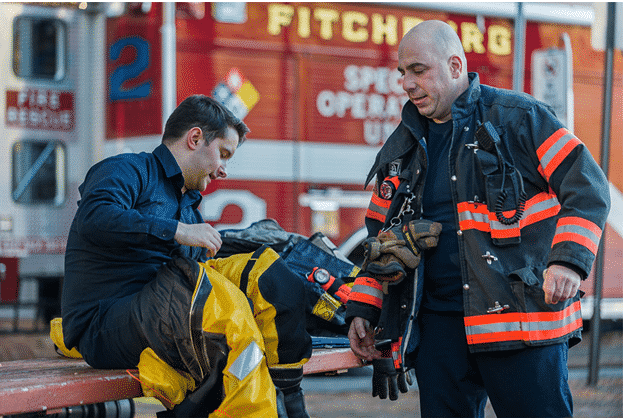December 5, 2019
If you consider yourself in recovery from a mental health or substance use disorder, you may be interested in using your recovery experience to serve others who are struggling.
As a fire fighter or emergency medical personnel in recovery, you have a valuable perspective that may benefit others. Not only do you understand the stressors of the job, but what it takes to ask for help in an occupation that has traditionally not recognized the importance of behavioral health.
As an IAFF member in recovery, you bring the knowledge, empathy and credibility to serve others who are struggling with depression, post-traumatic stress disorder (PTSD), grief or substance abuse.

Serving others can provide a sense of value, purpose and connection to others, which are all important components of continued recovery and well-being.
Your experience may help motivate others from ambivalence to change, creating a positive out of the suffering you experienced. Lastly, helping others can provide perspective on how far you’ve come, while providing you the accountability needed to stay on track.
Fire fighters who have dealt with their own behavioral health challenges may be naturally drawn to serve others — and this is a good thing! However, it’s critically important to fully assess your own stage of recovery before shifting your focus to help others. You should be in a stable place in your recovery. Check in with your local mental health care provider first to determine if now is the right time.
To learn more about how peer support team members are recruited, see the IAFF Guide How to Recruit Members for Your Peer Support Team.
If you are in the early stages of recovery or looking for resources to heal from a mental health condition or substance use disorder, The IAFF Center of Excellence can help. The IAFF Center of Excellence for Behavioral Health Treatment and Recovery is a comprehensive treatment center designed exclusively for IAFF members struggling with addiction, PTSD and other co-occurring mental health problems. Call today for a no-obligation, free and confidential screening for you or a loved one.
Lauren Kosc, M.A., LCPC is a behavioral health specialist, clinician and blog editor for the International Association of Fire Fighters. If you are an IAFF member in recovery and want to share your story, contact lkosc@iaff.org.